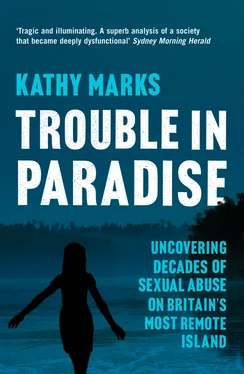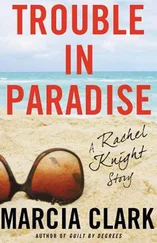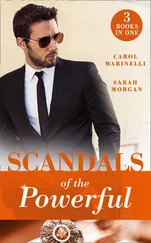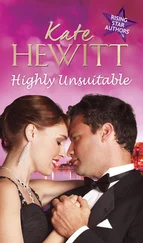The talkative ones explained that under-age sex was the norm on Pitcairn. Darralyn Griffiths, the daughter of Jay Warren, one of the defendants, told us in a matter-of-fact way that she had lost her virginity at 13, ‘and I felt shit hot about it too, I felt like a big lady’. She was partly boasting, partly censorious of her younger self, it seemed to me. Others clamoured to make similar admissions. ‘I had it at 12, and I was shit hot too,’ said Jay’s sister, Meralda, a woman in her 40s. Darralyn’s mother, Carol, 54 years old, agreed that 13 was ‘the normal age’, adding, ‘I used to be a wild thing when I was young and single.’ Olive Christian described her youth, with evident nostalgia, as a time when ‘we all thought sex was like food on the table’.
The British police had misunderstood Pitcairn, they claimed: it was a South Pacific island where, to young people, sex was as natural as the ocean breeze. Olive said, ‘It’s been this way for generations, and we’ve seen nothing wrong in it. Everyone has sex young. That’s our lifestyle.’ Darralyn echoed her. ‘It was just the way it was. No one thought it was bad.’
We must have looked surprised. They were surprised we were surprised. Well, at what age did we start having sex, they demanded. It was clear, in this company and at this particular juncture, that the question could not be avoided. Some of our responses met with howls of derision. The women of Pitcairn did not believe that anyone could have lost their virginity at 18; the idea of being that old was simply preposterous.
The serious point of this was to persuade us that the criminal case was based on a misconception—and, furthermore, that it was all part of an elaborate plot. Britain was determined to ‘close the island down’, they said, because it had become a financial burden—a ‘thorn in the arse’, as Tania Christian, Steve and Olive’s daughter, put it. What better way to achieve that than to jail the men who were the very backbone of the community?
Why, though, we wondered aloud, would the women who had spoken to police have fabricated their accounts—accounts that, despite them growing up on the island in different eras and now living thousands of miles apart, were remarkably alike? At this point the Pitcairners produced their trump card: Carol Warren’s daughters, Darralyn and Charlene.
Charlene, 25 years old, with long, curly hair and a diffident manner, spoke up first, egged on by her mother. Charlene revealed that she had been one of the women who made a statement in 2000, alleging sexual abuse by Pitcairn men. But, she added, as others sitting around her clucked approvingly, she had only done so because she had been blinded by greed. She explained, ‘The detectives … dragged me to the police station. I didn’t know what I had done. I was ignorant. I was offered good money for each person I could name. They said I would get something like NZ$4000 (£1,500) for every guy. After I had added it up in my head, I was, like, “Whoa!” I just blurted everything out to them.’
Then it was her sister’s turn. Darralyn was 27; well built, with a fair complexion, she resembled Charlene physically, but was more self-assured. Darralyn told us that she had also made a statement—but, she said, only after being browbeaten by police. She claimed that detectives had asked her to ‘make up a false allegation against a guy here, because they didn’t have enough evidence to put him under’.
A New Zealand detective and child abuse specialist, Karen Vaughan, who had joined the British inquiry team, told Darralyn’s partner, Turi Griffiths, that if they had a baby daughter and brought her to the island, she would get raped too, Darralyn alleged. ‘I was shit scared. They told me if I tell the truth, everything will be fine. They said they’d heard from other people about my past. They asked me disgusting personal questions.’
Both sisters were living in New Zealand at the time of the investigation, and both told police that they were prepared to go to court. But ‘after I really thought about it, it was half and half … I wanted it just as bad as them. It was very much a mutual thing,’ said Charlene, referring to the men whom she had named as abusers. That re-evaluation took place after Charlene returned to Pitcairn. Darralyn changed her mind shortly before she, too, went home.
By now my head was spinning. We had had middle-aged matrons bragging about their sexual exploits. We had had Charlene and Darralyn outing themselves as victims, but not really victims. Now their mother, Carol, was declaring that no Pitcairn girl had ever been abused—and, almost in the same breath, telling us that she had had an unpleasant experience as a child. ‘It didn’t affect me,’ she said. ‘I was probably luckier than some I’ve read about. It was tried but nothing happened. I was ten at the time. But even at ten I knew it was wrong, it’s a bad thing. I screamed like hell.’
When she heard that Darralyn had spoken to police, Carol said, ‘I thought, what on earth is that girl thinking about? The silly idiot … Well, if that’s what she’s gone and done, I’ll have to stand by her.’ She went on, ‘I told the cops, not one of these girls went into this with their eyes shut. They knew exactly what they were doing. They weren’t forced by anyone. The women here are loose, and it’s not the men’s fault. What are they supposed to do?’
Carol then hinted at ‘some really bad stuff that I know about that’s happened on the island that’s a heck of a lot worse [than under-age sex] … That’s sick sex I’m talking about, between adults’. She was referring to adultery, it transpired, and as she uttered the word, Carol growled like an alley cat. ‘Maybe I’m old-fashioned, but to me that’s taboo,’ she said. ‘Some people don’t care. They don’t have morals.’
Like the others, Carol had a way of looking at you without meeting your eye. It was disconcerting. The women, with their permanently distant expressions, all seemed to be wearing masks. The outspoken ones laughed a lot, particularly at coarse jokes. They came across as both manipulative and naïve. They were not the type to be easily intimidated. They were feisty and opinionated: people who would be able to look after themselves.
But when conversation moved to the prospect of their male relatives being jailed, the women suddenly appeared vulnerable. ‘I wouldn’t want to be without the men,’ Meralda said softly. Carol interjected, ‘We’re lost as hell without them.’ Olive reckoned that, without the men, ‘you might as well pick Pitcairn up and throw it away, because no one is going to survive … We can’t look after ourselves.’ With the population already at crisis point, they claimed, if even a couple of men were locked up, there would be too few to crew the longboats and maintain the roads. Meralda questioned why Britain had singled out the able-bodied men. Olive said, ‘There’s no one who can replace them. They can’t bring outsiders in to run the boats. They’ve no idea what to do.’
Of all those present, Olive stood to lose most. Among the seven defendants on the island, she counted her husband (Steve), her son (Randy), father (Len) and younger brother (Dave). The six men facing court in New Zealand included her other brother, Kay, and her two other sons, Trent and Shawn. Like certain women in the room, Olive also had connections with some of the alleged victims. She lamented, ‘We live as one big family on this island, and nothing will ever be the same … Right now, with all this going on, maybe they should have hanged Fletcher Christian.’
We had been at Big Fence for several hours, and no one was showing any sign of moving. The women, it seemed, were willing to stay for as long as it took to win us over. When we got our cameras out, they smiled, repeatedly. We could take as many pictures as we wanted.
Читать дальше












